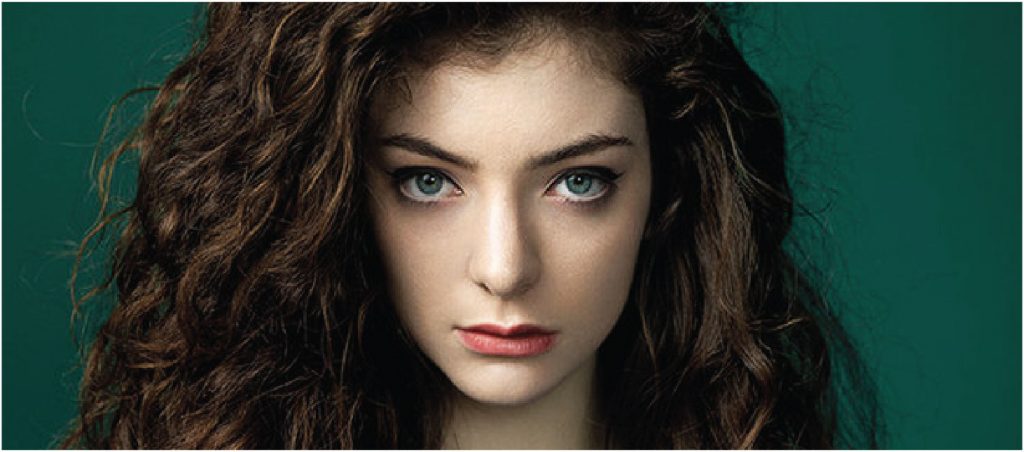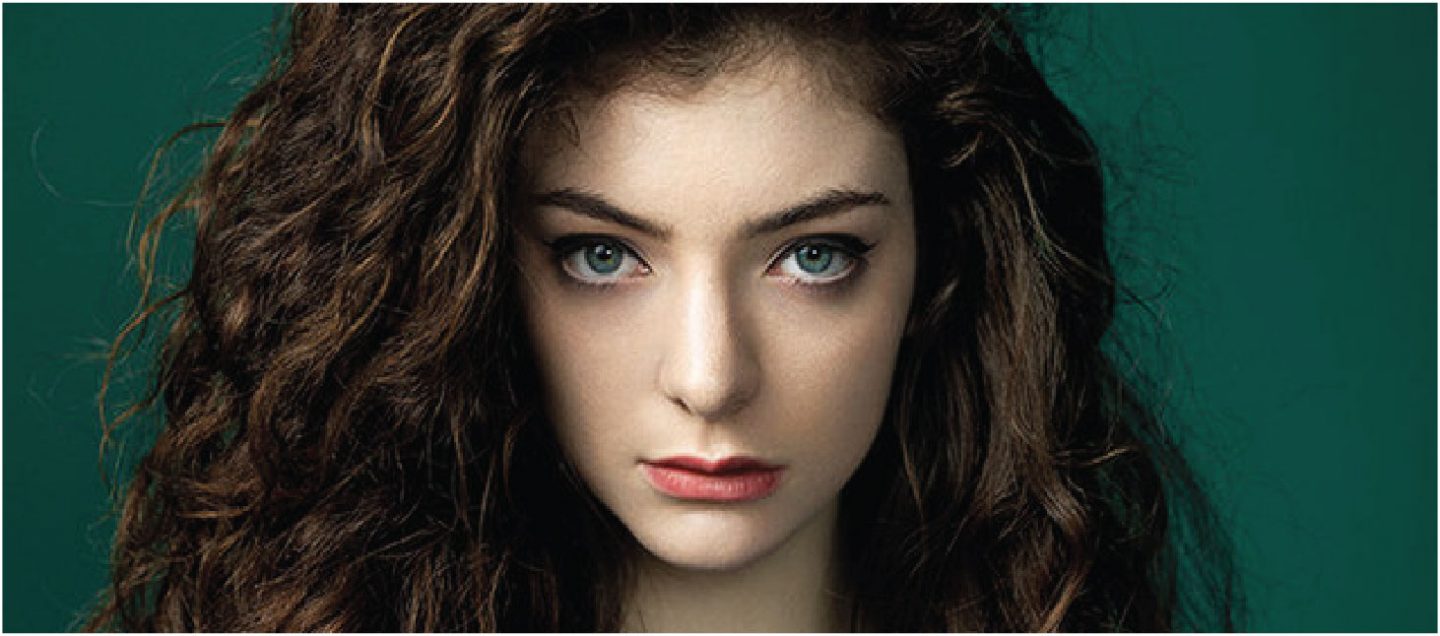
In 2013, Pure Heroine burst into pop culture with a precocious “Royals” that was more acutely aware of the limitations of adolescence and the humility of suburban mundaneness, than indissolubly desirous of projecting the trite ‘angst’, the absence of which only enhanced its subtle glory. From Ella Yelich-O’Connor’s debut album, “Ribs” stuck out on its first playback, not because it was a rumination of an inside versus an outside but a deep examination of companionship and loneliness, childhood and adolescence (“You’re the only friend I need / Sharing beds like little kids / Laughing till our ribs get tough / But that will never be enough”).
Earlier this year, when Lorde reappeared with the crescendo of “Green Light”, the “brand new sounds” were inevitable given her collaboration with Bleachers’ Jack Antonoff, a minister of millenial-pop. Notwithstanding the millennialism of Melodrama and the American friendships of Antonoff and Taylor Swift, Lorde’s sophomore album is never allowed to be overpowered by the New Yorker noises. The Haim-esque opening to Melodrama seems a refreshing graduation from Pure Heroine and the partly-formed deductions of adolescence, which bigger artists, like Adele, have hideously failed to shed in their transition from one album to the next. If anything, the opening song prefaces what the visual background to the eleven song sequence could be. If she reprimands her paramour for lying about loving the beach, there lies the clue: Melodrama is an introspective setlist for a party at the beach, reflecting all the moods from noon to night. This is not a stretched inference given the karaoke bar set in which Lorde performed at the Billboard Music Awards and her own claim that Melodrama encompasses the plethora of emotions — from sobriety to ecstasy to reflection and its attending melancholy — that characterises the novices at a “single house party”. Years & Years’s 2015 debut Communion achieved exactly this with stellar effects and Olly Alexander’s superb malleable vocals that were able to be sexual in one moment and burgeoning with grief in the next.
With “Sober”, the synth and the sparse brass percussion characterises the drive to this intimacy, to the party, the climactic midnight of insanity. “We’re King and Queen of the weekend” sounds contrary to the girl who claimed “My mum and dad let me stay home” in 2013. Many will claim she is a transformed wallflower. But social media adores absolutes: Miley’s “We run things” and Lorde’s “But we sure know how to run things” pitted the women against each other. It was anything but. And now, social media claims they seem to have swapped places as Lorde dances maniacally at the top of a car and Miley is tame, skipping through a field with her dog in tow. If anything, “Sober” seems a natural extension of the first half of “Ribs” and “White Teeth Teens”, the adjustment, if not dissolution, of inequalities with the exterior. There’s awareness in Melodrama: “We pretend that we just don’t care / But we care”, whilst Pure Heroine is stubborn: “We don’t care / We’re driving Cadillacs in our dreams”.
The high grips the veins and the ears with “Homemade Dynamite” when Antonoff’s deft and dense synth qualifies an ascent into an abstraction of the exterior which New York had seemed at first to Lorde during the recording of Melodrama. Oddly, focus returns in the beautiful, sensitive “The Louvre”, which seems an ecstatic recreation of the latter half of “Ribs”. The chorus with its looped vocals and the resonance is akin to the ecstasy evoked by The Temperance Movement’s White Bear and seems a bittersweet invocation of early 00s Alternative. In “Liability”, the pristine balladry of the piano with the unconventional pop of Lorde’s rasp betrays her own pop aspirations, which were free from any generic attachments to Alternative to begin with. The unusual combination of piano with faint synth and the belt-less confession is when the melancholy takes over. The beginning of “Hard Feelings / Loveless” has a definitive “Aha!” moment as it begins with the same hand claps and percussion as “Royals”. The first half (“Hard Feelings”) contains a careful plea and a resolution that progresses from “Liability”s grief to an EDM-eseque second half (“Loveless”) that is shockingly bipolar and accusatory and more juvenile in its treatment of the lover. It even ends with a fade, a device one might find in an antique shop of tunes in present times. Reprisals are another feature of Melodrama: “Sober” and “Liability” have their respective refrains. The witchy initiation in the former is replaced by a cinematic string arrangement a-la-Lana in “Sober II (Melodrama)”. In the latter, the ballad is replaced with “Liability (Reprise)” a starkly unmemorable track, derivative of the mediocrity of someone like The Chainsmokers.
The chorus of “Writer in the Dark” is gloriously McCartney-esque circa Live and Let Die and like “Liability”, is bereft of excessive production. “Supercut” seems a sonic cousin of Robyn or Clean Cut Kid’s Felt where the hook of “Greenlight” pops up again. The close of Melodrama is “Perfect Places” the calculated minimalism of which harks to Solange’s A Seat at the Table and instantly undoes that expectation of watery vocals with an anthemic chorus of the teenager who is refuted by the lower registers of the wizened woman.
The refreshing arrival of Melodrama in the midst of the inertia of run-of-the-mill pop that has pervaded the waves for the last few months is akin to the drop of Frank Ocean’s Blonde last year or Beyoncé’s Lemonade. Like the latter’s 2013 self-titled album, Melodrama is deliciously cohesive, thematically and sonically; unlike the former, it does little with genre or structure. If Beyoncé is industrially enigmatic and Loyle Carner emphatically confessional in Yesterday’s Gone, Melodrama falls somewhere in between which is perfect because it allows Lorde room to revisit it in her next project with a revisionist attitude, this very attitude making the LP at hand triumphant.
K
King and Queen of the Weekend: The Glorious Revisionism of Lorde’s Melodrama

CategoriesMusic




